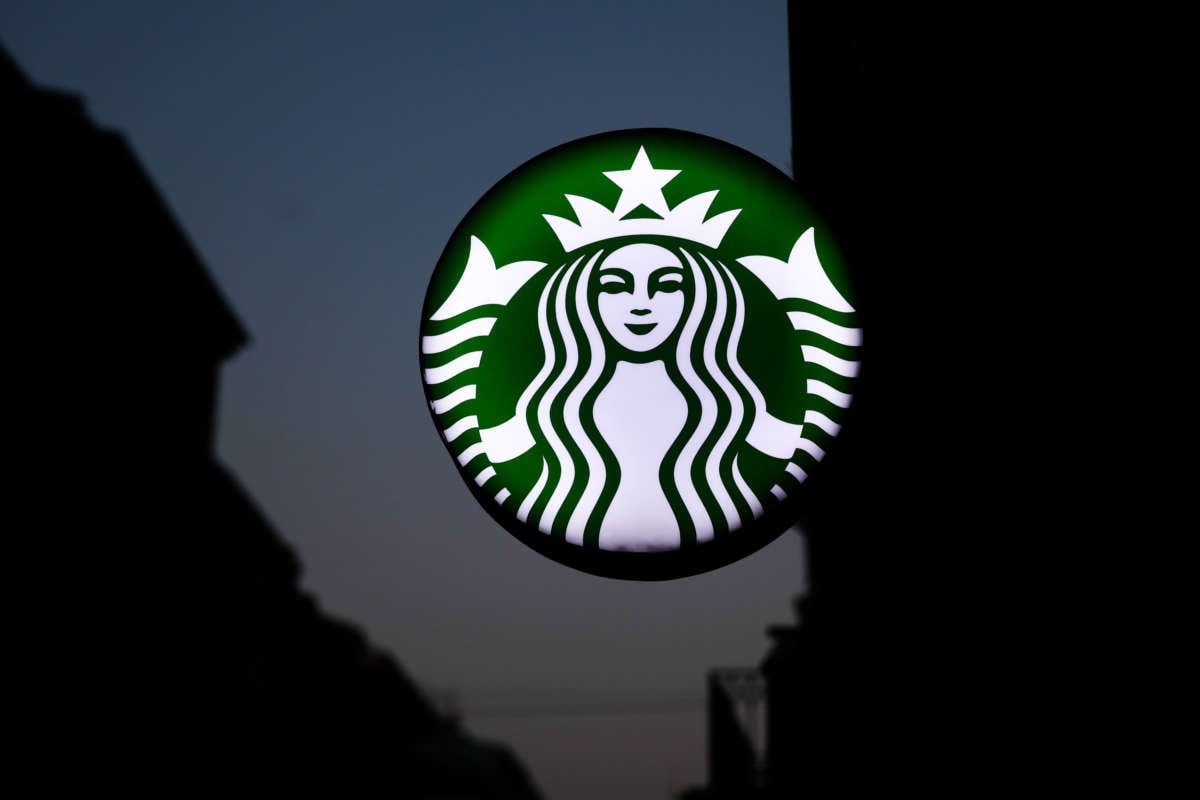Starbucks workers have filed a lawsuit against the company, accusing the company of defamation for filing kidnapping and assault charges against workers earlier this year after they waged a labor protest — charges that the union said were totally false and were later dismissed by the police.
In August, workers at a unionized store in Anderson, South Carolina, confronted their store manager with a letter containing a list of demands like fixing store equipment and wage increases. After calling corporate about the action, and obtaining explicit permission from the workers to leave, an audio recording showed, the manager exited the store and filed the charges with the police. The company also released a statement regarding the incident, the union says, and had suspended the workers.
A TikTok posted by Starbucks Workers United shows the manager leaving the store freely, and police later determined that “none of the allegations” were true, the local police department said. But Starbucks Workers United says that the company and their manager have never retracted their allegations.
Workers are seeking a defamation judgment against the company with compensatory and punitive damages, as well as an injunction against incidents of false accusations. They say that the company has caused them damage in “falsely stating or insinuating that they had engaged in criminal assault and kidnapping.”
“It’s more apparent now than ever that Starbucks will go to any length to smear workers, even going as far as lying to the police and accusing us of crimes we did not commit,” Anderson worker Aneil Tripathi said in a statement. “They abused the law enforcement process to intimidate us and keep us terrified that a knock on the door would be the Anderson police coming to take us away.”
“This case is about more than defamation; it’s about highlighting the disgusting, outright abuse Starbucks will level at their own workers,” Tripathi concluded. Tripathi was one of six Anderson workers who was fired last September after workers waged another labor protest.
Workers also say that the company’s accusations caused them emotional distress.
“This looming threat over our heads personally caused me so much anguish that I received extensive therapy and dealt with numerous breakdowns, desperate to find a way out, desperate to find stability,” Anderson worker Natalie Mann said. “There are no words to describe what it feels like when a multibillion dollar company attempts to muzzle your voice and break your spirit.”
The company denies wrongdoing. “No Starbucks partner has been or will be disciplined for supporting or engaging in lawful union activity — but interest in a union does not exempt partners from following policies and procedures that apply to all partners,” the company said in a statement.
This is the first lawsuit filed in Starbucks Workers United’s union campaign, which has seen astonishing success and been met with fierce opposition from the company. It is not the first legal complaint that has been filed against the company; labor officials have found numerous accounts of illegal union busting by the company.
The union has filed hundreds of unfair labor practice complaints over Starbucks’s anti-union tactics. These include moves like keeping lists of pro-union workers to discipline, firing dozens of union organizers across the country and denying workers new wage raises and benefits — all tactics that the union says are meant to stifle the union movement.
Media that fights fascism
Truthout is funded almost entirely by readers — that’s why we can speak truth to power and cut against the mainstream narrative. But independent journalists at Truthout face mounting political repression under Trump.
We rely on your support to survive McCarthyist censorship. Please make a tax-deductible one-time or monthly donation.
